- For a few hours, I was unable to unlock or access our long-term Lucid Air.
- An exhaustive amount of research revealed a redundancy failed.
- Owners should make sure to carry some backup methods of entry while traveling.
UPDATED: How and Why Our Lucid Locked Me Out
A dropped cellular connection and a problem with the key fob left me stranded; here's how to avoid the same fate
UPDATE: After the publication of the below article, we’ve had a series of discussions with representatives from Lucid that provided additional clarity as to why I was left locked out of our Air Grand Touring. This included a conversation with Michael Bell, Lucid’s SVP, Digital, who is responsible for the technology. The objective of this update is to provide further advice for Lucid owners/drivers.
Lucid recommends three methods of entry — and that more than one method should be on your person at all times — to unlock the vehicle: the key fob (using Bluetooth and radio frequencies), the valet key (using near-field communication or NFC, similar to Apple Pay on an iPhone), and the mobile key (also via Bluetooth).
The mobile key IS different from the Lucid mobile app. The latter relies on an active cellphone network to communicate with the vehicle and is thus not recommended by Lucid as a reliable means of opening the doors. The mobile key (also referred to as "mobile phone as key"), by contrast, is set up using the lower screen inside the vehicle along with the app. It requires a separate Bluetooth connection than the one used for calls/audio. It also requires additional app permissions, such as the ability to access your location at all times.
I was carrying the key fob (one of the three recommended methods) and attempting to use the Lucid mobile app to unlock the vehicle. The key fob, even with a dead battery or the battery removed, should still allow you to open the vehicle's doors, and that system malfunctioned in this case.
Lucid says our battery was likely from a faulty batch from a supplier, which explains why it failed after less than six months. The automaker says it rectified the problem for new cars and assures us that a battery should now last a year.
For owners, we'd recommend carrying the valet key and anyone driving the car regularly should also carry out the mobile key procedure. It takes about two minutes and, again, requires the PIN code for the vehicle. The mobile key is intended to work as the key fob does when the battery is functional: On approach the car doors unlock, and after you park and walk away, the doors will lock automatically and a PIN is not required to drive.
Questions about the incident do remain. Lucid is unable to ascertain why — after some period — the vehicle managed to wake up and regain a connection to the cloud network even though it had not moved. It’s also disappointing that both the key and the key’s redundancy system failed in this case after just a few months of ownership. In our experience, EV owners do not typically carry multiple methods of accessing their vehicle.
Our advice to not only Lucid Air owners, but those with Teslas, Rivians or other vehicles that allow you to access the vehicle via an app, is to carry some alternative method of unlocking the vehicle on you whenever possible.
We have plenty of vehicles in our long-term fleet that would make for fine road trip companions, from the Chevrolet Tahoe with its ability to swallow up people and cargo with ease to the BMW X3 with its comfortable ride and intuitive technology. But for a long trip over the Thanksgiving weekend to the San Francisco Bay Area from our offices in Los Angeles, I had my sights set on something a bit more out-of-the-box: our new long-term Lucid Air.
The trip would afford us a chance to test the car's long-range performance and give me valuable seat time behind the wheel of one of the hottest and most unusual EVs on the market. The fact that it needed lots of miles put on it so we can continue to see how the Air's giant battery holds up over our time was just icing on the cake.
So, I "volunteered" to take the Lucid Air on a long holiday excursion and began my week with the car with great anticipation, excited to spend a lot of time behind the wheel of a big, luxurious sedan. It turns out the Air is a delightful cruiser with its copious power and smooth ride, as well as lightly massaging seats, for the six-hour drive in either direction.
But what I wasn't prepared for were the several speed bumps I'd hit along the way, including overbearing driver aids, problems with closing the doors, and satellite radio that stopped working about 15 minutes after it was installed via an over-the-air software update. But the biggest hurdle turned out to be more like a brick wall: getting locked out of the car for about three hours.
Locked out with somewhere to go
On the Saturday evening after Thanksgiving — the night before I was due to drive the Air back to our offices — I went to visit a college friend for dinner and parked the sedan across the street from his townhome in Oakland. After plenty of pizza and frivolity, I went to leave at 9:10 p.m. I did not leave at 9:10 p.m.
I was carrying on my person two of the three methods that can unlock the vehicle: the Air's key fob and my smartphone. The key fob had been flaky all week (we'd later find that it had run out of batteries after only a few months of ownership), so I had been mostly dependent on using the mobile app. When I opened the app as I got to the car, I noticed a message that read, "Last updated: 2 hours ago." Normally, this message disappears and the car wakes up. But not this time. I tried hitting the unlock button on the app and my phone would attempt to connect to the vehicle, but it only showed a spinning ball next to a message that said "May take up to 30 seconds."
While waiting for several minutes for the car to wake up, I furiously tried the key fob to no avail. It was time to call the Lucid customer care line.
On the phone with Lucid
Yes, Lucid operates a service line that you can call if you're an owner and experiencing problems with your vehicle. One of the perks of buying from one of these emerging automakers is that it's actually pretty easy to get someone on the phone if you are having trouble. I had called this number once previously during the week when the front driver's door wouldn't shut (you read that right), so I punched it up in my recent calls and connected with a representative at 9:21 p.m. I explained the situation and she began troubleshooting by sending commands to the car for it to unlock remotely, but it quickly became clear that the car had disconnected from the cellular network that powers the mobile app and the command center's connection to the Air as well.
She then asked me if I had the key fob and walked me through a few steps to unlock the car using that. I go through a procedure that's supposed to work even if the key fob is without battery power. This involves pushing in the door handle on the driver's door then holding the fob up to the B-pillar underneath the camera, but still no luck. At this point, the operator asks if she can speak to another employee about potential options to unlock the car and says she'll call me back. About 30 minutes later, I get a return call confirming that there isn't anything else that can be done remotely to unlock the car. The car is locked and I am stuck, and this is when the interesting conversations began.
"We are willing to rent you a car"
Having exhausted the available unlocking tools, the Lucid agent and I begin discussing options. In the immediate future, the agent says the car might need to be towed to Lucid's service center in Millbrae, California, but it won't open until Monday morning and offered to cover the cost of a ride-booking service to get me home (about 30 minutes away). I asked what the car would be doing until then and she gave me the option of waiting for the tow company to arrive that evening to give them the key fob, then they would hold onto the car through Sunday and take it to Millbrae on Monday morning. Or — since it's unclear how long it would take for the tow to arrive at 10 p.m. on the Saturday after Thanksgiving — I was told I could leave the key fob in the wheelwell. That seemed like a good way to get fired, so I quickly dismissed that idea.
I had mentioned previously on the call that this was a company car and I was due in Los Angeles on Monday for work and to return the vehicle, and Lucid's counter was intriguing, to say the least: They'd pay for a rental car so I could drive back to Los Angeles, and then ship the Lucid from the automaker's service center down to our offices in LA after presumably it was fixed.
It didn't seem like renting a car immediately was an option given the time (by now approaching 10:45 p.m.), so we agreed that I'd take a ride home that evening and assess in the morning. If the car still needed to be towed, there was no harm in doing it then. The agent advised me to keep checking the app because there was a chance the car could reconnect on its own — a situation the agent had experienced with another owner's Air. She also indicated that she would continue to check on the car as long as she was on her shift.
So I called a Lyft and took a ride home, arriving at 11:22 p.m.
IT'S ALIVE
I got home and plopped down on the couch, while frantically writing down notes to document the evening so far. Once that was finished, I opened the Lucid app at 11:45 p.m. to check on the car. There was a new message at the top of the screen: "Last updated: 14 minutes ago." Praying to the car gods that this solved the issue, I called my friend and asked him to take a peek at the car out of his window while I sent commands through the app to unlock the car and flash the headlights. "It's lit up like a Christmas tree," he told me. The Air was back online.
I woke up my father to drive back with me to the car, while periodically checking the app to make sure it was still connected. On the way, I received a call back from the Lucid agent who excitedly told me, "Mr. Wong, I noticed that your car is responding now!" I let her know that I noticed as well, and that I was on the way to go get it. We picked up the car and I drove it home, where I considered not locking it that evening for obvious reasons.
So, what happened?
Getting locked out of your nearly $160,000 car is a maddening experience, even if you consider it to be part of the growing pains that come along with buying a new automaker's first car. It was important for us to get to the bottom of how and why this could have happened and to better understand the redundancies that Lucid has in place for situations like this.
After reaching out to Lucid, I learned that the spot in which I parked the car (which was about half a mile from the freeway in Oakland) happened to be a tiny dead zone for AT&T, the carrier that the Air uses to power its cloud connection. My friend's residence is part of a housing development that was once a rock quarry, so it has high mountain walls around it that can block cell signals. After hearing about my ordeal, Lucid drove another Air around the area I got stuck in and observed an intermittent cellular connection in the area (though apparently if I'd been parked one block closer to the freeway the connection would have been quite strong). I use a different carrier for my personal phone, which explains why I was able to dial out to Lucid in the first place.
As for why the car would spontaneously connect again at a later time … there isn't really an explanation for that. At some point the pings happened to get through and the car woke up. It's a mystery as to when and why that occurred.
We also learned that the key fob I was carrying should have worked even with a dead battery. There is an unlocking procedure that the call center walked me through that should work even without a battery in the fob, but it wasn't working that evening and we were unable to get the method to work consistently in our subsequent tests at our office. One of our other editors got it to work, but I was unable to do so on multiple occasions, with the car both fully asleep and woken up already (and despite having video showing how to do it from Lucid). On the phone, I was told that it wasn't working because the method requires the car to be connected to the cloud but Lucid later assured me that this isn't the case.
The final method of getting into the car would have been via one of the valet keys, which can be used to unlock the car, after which you enter a PIN to drive the vehicle. If I end up taking our Lucid again for a week, I will definitely be carrying one of the valet keys in my wallet as well.
It seems that my getting locked out required a few different systems to fail, but none of these failures require any stretching of the imagination. Let's say you took your Air out on a camping trip or a cabin in the mountains where it doesn't have reception, or your phone died and you couldn't access the car that way. Those are normal use cases that people have with their vehicles and the Air seems ill-equipped in those scenarios, especially since the key fob entry method wasn't reliable.
What we recommend
With the key fob method working inconsistently, I won't sign out the Lucid without one of the valet key cards in my wallet. That way if I happen to park the car in an underground garage or another place without reception, or if my phone runs out of battery, I'll have some recourse. In our testing, the valet key cards were the best solution when we were unable to rouse or unlock the car via other means.
Lucid isn't the only automaker to have trouble with the locking/unlocking of an EV. Just last year, Tesla had an app outage that prevented some owners from unlocking or driving their vehicles for several hours. For owners of Tesla, Lucid and other vehicles that use apps like our long-term Rivian R1T, it's probably a good idea to carry some kind of redundancy (or even multiple forms) at all times and to try them out to make sure you know how they operate.
Discoveries like these are the reasons why we spend our own cash to buy these new and rather expensive EVs as they come to market. Many of the growing pains won't show up in a short-term loan. Living with the car day-to-day is the only way to get a deeper sense of the ownership experience. My experience was a little too deep for my liking, but we learned something else about our Lucid Air — and at least I got to turn it in the next week for something a bit more low-tech.
[Editor's note: Lucid reached out to us after the original publication of this article and asked that we highlight one more method of entry to the Air — the mobile phone key. We note that this is different than the mobile app method described in the article above, as it functions via a Bluetooth connection that does not require a cellular signal. The mobile key is still set up through the Lucid mobile app and does not require a PIN code when used to access or drive the vehicle. Setting up your phone as a mobile key does require you to enable location services for the app at all times, and creates a separate Bluetooth connection to the one used to operate the phone/media functions. We would strongly recommend that all owners activate this feature on their mobile devices, as it is one of three recommended methods for unlocking the Air (valet key, key fob and mobile key).]
Edmunds says
It's a good idea to always be carrying a backup method to unlock your vehicle even if you mostly depend on a smartphone app or phone-as-key method to access the car. Thankfully the valet keys for both Lucid and Tesla are small enough to be kept in a wallet and don't require batteries or an active data connection to work.
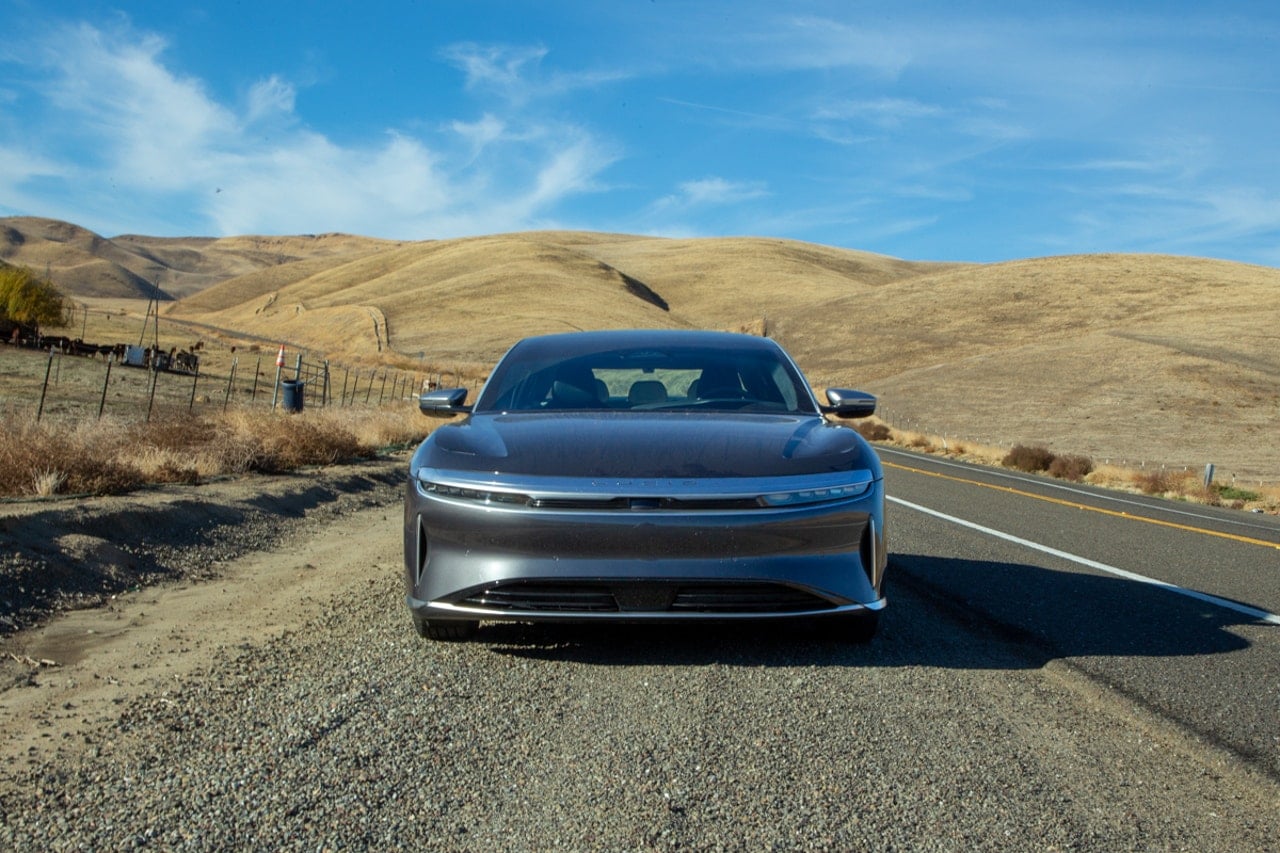
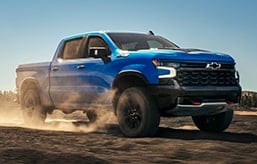
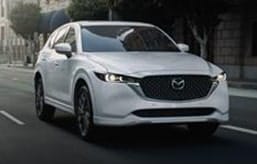
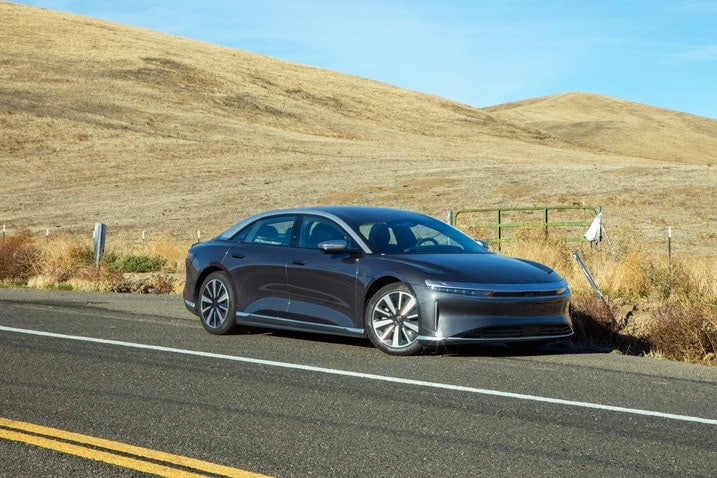
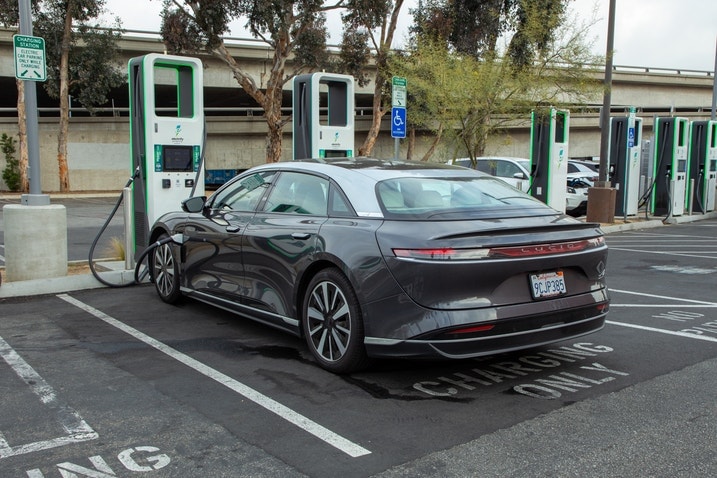
 by
by